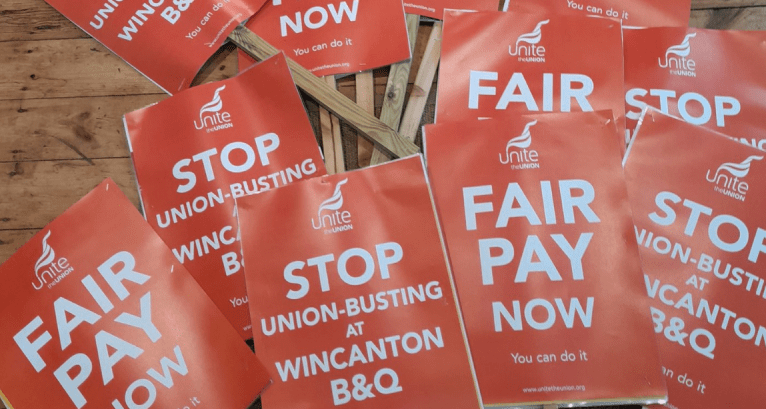Adrian Weir
Adrian Weir has a background in the engineering industry in Southampton where he was an AUEW lay representative (shop steward/safety... Read more »
The Certification Officer has been given broad new powers to impose financial penalties on unions

On 1 April the so-called “trade union regulator” more formally known as the Certification Officer will assume the powers given to her by the Employment Act 2016 to impose financial levies on trade unions.
As a sop, employers’ associations as equivalent “social partners” are also included as being liable to pay the levy but they have successfully lobbied so that the major burden will fall on the unions. One suspects that they didn’t have to lobby too hard.
The Certification Officer has also been given the power to impose financial penalties on unions (or any other person) but employers’ associations are not included under these provisions.
In case anyone was in any doubt about the political nature of this attack on the unions a quick look at the ranking of “offences” and the possible financial penalty payable shows just how ideological these new legal provisions are.
There are 6 “offences” listed as being classed as Level 1 that could attract a penalty of up to £10,000 for smaller unions with less than 100,000 members; for larger unions with more than 100,000 members a penalty of up to £20,000 is possible.
Four of these six in this category are in connection with a union’s political fund so nothing to do with “industrial relations” the usual reason proffered for a renewed attack on union rights:
There are two further category of “offences” that would attract lesser penalties; Level 2 (1 “offence”) for smaller unions a maximum of £5,000 and a maximum of £10,000 for larger unions. Level 3 (4 “offences”) for smaller unions a maximum of £2,500 and a maximum of £5,000 for larger unions. Further, a maximum penalty of £1,000 is payable for any category of “offence” if it is held that the breach was the responsibility of an individual person.
In case anyone was in any doubt about the political nature of this attack on the unions a quick look at the ranking of “offences” and the possible financial penalty payable shows just how ideological these new legal provisions are.
In common with the anti-trade union legislation introduced by the Tories from 1980 onwards these new rules are unlikely to target any union leader much less shop stewards. Refusal to pay a “financial penalty order” will not lead to a general secretary being hauled in front of the courts; the money will be recoverable by the Certification Officer as an ordinary debt.
Alongside this opportunity to essentially fine a union the Certification Officer will also levy monies from the unions (and employers’ associations) in order to fund most of the working of her office.
In common with the other lies told by this Government it has argued that this levy is similar to that paid by other bodies covered by statutory regulators. But it’s just not true, other organisations do not pay for statutory regulation.
Sky, the BBC and ITV do not fund Ofcom. Virtually all corporate bodies now hold data on us but they do not have to fund the Information Commissioner and corporations do not pay to fund Companies House or the Competition Commission.
The Certification Officer claims that about half of her time is spent dealing with general issues which may include employers’ associations and trade unions; the remaining fifty per cent of her time is spent exclusively on trade union matters.
In keeping with this alleged distribution of work the levy will not be distributed equally between unions and employers’ associations; both will pay the “basic levy” which will not cover the costs of the Certification Officer. Subsequently, there will a “categorised additional levy” to be paid for by the unions alone.
There is also provision for an “enhanced levy” to be paid by the unions and employers’ associations if the first two categories of levy fail to raise sufficient funds.
In an act of great magnanimity a cap has been set on the amount of money to be levied from a union; it has effectively been set at 2.5% of annual income.
The Certification Officer has estimated that she will need £1,150,000 to run her office from April 2022 a greatly increased sum based on past costings.
Currently there are very few trade union cases; it must be that she is anticipating a big uplift in that work when third parties exercise their new rights to bring a complaint against a union or she exercises her new powers to initiate an investigation into a trade union even when she has received no complaint of wrong doing or misconduct.
This article was originally published by Labour Outlook
Adrian Weir is TULO Officer at Hornsey & Wood Green CLP and Assistant Secretary of the Campaign for Trade Union Freedom. You can follow Adrian on twitter here.
Adrian Weir has a background in the engineering industry in Southampton where he was an AUEW lay representative (shop steward/safety... Read more »
‘Waiting for Godot’ – The Employment Rights Bill 2024 and the ‘single status of worker’ omission